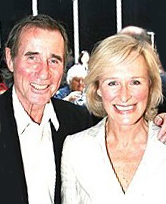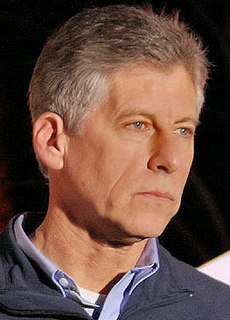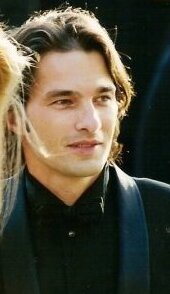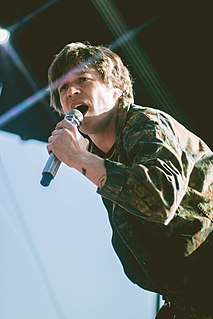A Quote by Jim Dale
It's a little like casting out hundreds of fishing lines into the audience. You start getting little bites, then more, then you hook a few, then more. Then you can start reeling them in and that's a loveliest feeling - the whole audience laughing with you.
Related Quotes
When I went through the Simpson case, I was a cop. Then I was a good cop. Then I was a bad cop. Then I had the media camped out in front of my house when I retired. Then, you know, I am the evilest thing on the planet. Then I write a few books, and then I start getting involved, like the Martha Moxley case.
Put in every joke that's not a dud and then let's just start pulling the ones that work the least. You're just constantly sifting until you're left with the biggest chunks of gold. The audience also tells you what some of those chunks are. You can have your own favorites, and then, once you screen it for an audience, the audience tells you what they're entertained by. I feel like that's a big part of it.
It's like you run into this dark tunnel, trusting that somewhere there's another end to it where you're going to come out. And there's a point in the middle where it's just dark. There's no light from where you came in and there's no light at the other end; all you can do is keep running. And then you start to see a little light, and a little more light, and then, bam! You're out in the sun.
It’s a trifle. It’s got all of these layers. First there’s a layer of ladyfingers, then a layer of jam, then custard, which I made from scratch, then raspberries, more ladyfingers, then beef sauteed with peas and onions, then a little more custard, and then bananas, and then I just put some whipped cream on top!
With every song, all the elements have to work. First, the beat has to be great - you start there. You start with the music, and then the ideas follow. Then you start thinking of rhymes, and then you record it, and sometimes - this happens to me a lot - it doesn't come out as good as it did in my head when I first wrote it.
The last collaborator is your audience ... when the audience comes in, it changes the temperature of what you've written. Things that seem to work well -- work in a sense of carry the story forward and be integral to the piece -- suddenly become a little less relevant or a little less functional or a little overlong or a little overweight or a little whatever. And so you start reshaping from an audience.
Sometimes, you know how good certain people are and then you actually get to see them have the kind of matches you know they can have in front of an audience that isn't used to seeing that. Then, in a few minutes the audience is on the edge of their seats, just through the sheer craftsmanship of their abilities.
Different reactions while film test screening doesn't mean even the audience thinks ambiguity is a bad thing. But if you're asking them right away to start checking things off, they don't know what to do. I think at their best, it applies to when the audience knows what it is. Then, when they say, "Oh, well, I thought it was too boring in blah-blah-blah part," then you better pay attention to it. It's like going for the hamburger. Better be the good hamburger I went for.
I think you do have to attend to the sort of core values of film, which is that the audience wants to have a relationship with the characters, they want to understand what's going on there. There are certain things that comics can have a little bit more freedom in then when you're asking an audience to engage in it as a piece of cinema, but I do feel like the canvas is much bigger and wider and that we're being invited and frankly challenged to take risks, to be a little bit different. And that's fun, that's exciting.




































